Russia Discovers Genius Tactic of Arresting Civil Rights Protesters

For the first time, police in St. Petersburg, Russia, have made arrests on the strength of a new law banning the dissemination of information on homo-, bi- and transsexuality. Two men were arrested in the city center on Thursday after holding up a sign reading “Homosexuality Is Normal,” according to the newswire Interfax.
Russia’s second-largest city passed the controversial law on Feb. 29. The two men now face a possible maximum fine of 500,000 rubles (€12,800/$17,000). The maximum penalty is more than the average annual income in Russia.
— “At the end of March, Vladimir Putin’s United Russia party introduced a bill in the country’s parliament, the Duma, which would impose the ban at the national level.” You know what always works well? Arresting people who are asking for civil rights. All throughout history, this has been the proven path to making sure no one ever hears from these people again.
What We Talk About When We Talk About...

Hitler 1
Kony 2
Anne Frank 3
Michele Bachmann 4
Ralph Sampson 5
“This Jeremy Lin Nigga” 6
Health care costs 7
Reproductive rights 8
Governance 9
SOPA 10
The rule of law 11
Dick 12
Work 13
Noise 14
Flow 15
Universe computability 16
Solvency 17
Bank capital 18
War 19
Dirty realism in Spain 20
Death 21
Tusk 22
Lust 23
Desire 24
Divorce 25
The End 26
1 The Times of Israel, “What we talk about when we talk about Hitler” [source]
2 Nashville Scene, “What We Talk About When We Talk About Kony” [source]
3 The Jewish Chronicle, “What We Talk About When We Talk About Anne Frank” [source]
4 The American Prospect, “What We Talk About When We Talk About Michele Bachmann” [source]
5 Chuck Klosterman on Sports, “What We Talk About When We Talk About Ralph Sampson,” Chuck Klosterman [source]
6 Deadspin, “What We Talk About When We Talk About ‘This Jeremy Lin Nigga’” [source]
7 The New England Journal of Medicine, “What We Talk about When We Talk about Health Care Costs” [source]
8 Ms. Magazine, “She Says: Dorothy Roberts” [source]
9 The World Bank’s Governance for Development, “What we talk about when we talk about governance” [source]
10 The Village Voice, “What We Talk About When We Talk About SOPA” [source]
11 Theatre of the Rule of Law, Stephen Humphrey [source]
12 Spin, “What We Talk About When We Talk About Dick” [source]
13 Utne Reader, “Cutting Class” [source]
14 The Unwanted Sound of Everything We Want, Garret Keizer [source]
15 On Writing Fiction, David Jauss [source]
16 The Foundations of Quantum Mechanics, “What We Talk About When We Talk About Universe Computability,” Salvatore Guccione [source]
17 Congressional Record, V. 147, Pt. 4, March 27, 2001 to April 23, 2001 [source]
18 Dealbreaker, “What We Talk About When We Talk About Bank Capital” [source]
19 Best American Political Writing 2008, “What We Talk About When We Talk About War,” Royce Flippin [source]
20 Generation X Rocks, “What We Talk About When We Talk About Dirty Realism in Spain,” Cintia Santana [source]
21 The Mayan Magician and Other Stories, Jim Musgrave [source]
22 Fleetwood Mac’s Tusk, “What We Talk About When We Talk About Tusk,” Jonathan Segel [source]
23 The New York Times “What We Talk About When We Talk About Lust” [source]
24 Desire and its Discontents, Eugene Goodheart [source]
25 City Pages, “Eros by Any Other Name” [source]
26 Curbside Splendor, Issue 1, “What We Talk About When We Talk About the End” [source]
Previously: It Is A Truth Universally Acknowledged…, On The Internet Nobody Knows You’re A…, A Funny Thing Happened On The Way To… and Reader, I…
Elon Green writes supply-sider agitprop for ThinkProgress and Alternet.
Pictures of Hot Naked and Likely Dead Dudes on Display

If you want to see a lot of pictures of hot dudes, most of whom are probably dead, and who doesn’t want to do that, a new exhibition opened last night at the Leslie/Lohman Museum of Gay and Lesbian Art, down on Wooster Street. “The Piers: Art and Sex along the New York Waterfront” will be on view until May 10th.
Nick Cave's Handwritten Dictionary, And The Love Letters Jamie Shupak Gets From Her Boyfriend Every...
Nick Cave’s Handwritten Dictionary, And The Love Letters Jamie Shupak Gets From Her Boyfriend Every Day
You know Nick Cave must write the best love letters in the whole world. Because pretty much everything he writes is the best of its kind in the whole world. Well, now we know his secret: a handwritten, not-quite-exactly-alphabetical dictionary he made for himself and kept in the ’80s. Here are two pages of the “A’s” (wherein a certain very important “A” word is for some reason omitted.) And here is a page of “M’s” (“Micturition,” “Murk,” “Mordant,” etc.) Also, oddly, traffic reporter-cum-relationahip columnist Jamie Shupak is currently dating a man who she says had never eaten eggs before they met. (This is an assertion that I think calls for further investigation in light of the recent Mike Daisey scandal. NEVER? He had never, NOT ONCE eaten eggs? I’m sorry, I can not believe that.) But it’s nice that he writes her a love letter every single day
. [Via.]
Yoke: Use Facebook to Meet New People
by Awl Sponsors
Faces are materializing across the room, familiar, if not quite friendly. People you know, but don’t. If this were real life, you might say hello. But this is Facebook, and these are tagged photographs of News Feed denizens, just out of reach. You want to say hello. You might try the vestigial poke, or a cold message. But Facebook is for connecting you with the people you already know, not introducing you to new ones.
Yoke is new application built on top of Facebook that facilitates introductions to people you might like. This isn’t your father’s dating site. No laborious questionnaires or cringeworthy user-names. Signing up takes 30 seconds, and you’re immediately connected to friends of friends who share your interests.
What makes for a good match? Maybe you share close friends, or are from the same hometown. Maybe you went to nearby schools. Or maybe, like people who meet in bookstores, concerts, or festivals, you have similar tastes. Using third-party APIs from the likes of Netflix, the EchoNest and Amazon, Yoke overlays the things the rich activity and interest data that you’ve already opted to share from these services on top of your listed Facebook interests. So if you subscribe to The Awl, for instance, your matches on Yoke might include fans of bears. If you like Arcade Fire, you might meet people who listen to the xx. And if you read Jay McInerney, you might find readers of Bret Easton Ellis.
Yoke also works for people in relationships, allowing you to play matchmaker for your single friends. All communication is through private Facebook messages, nothing ever posts to your Timeline, and your matches are based only on what you’ve already liked on Facebook.
Happy yoking!
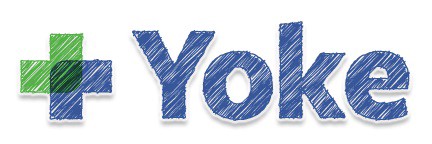
What Books Make You Cringe To Remember?
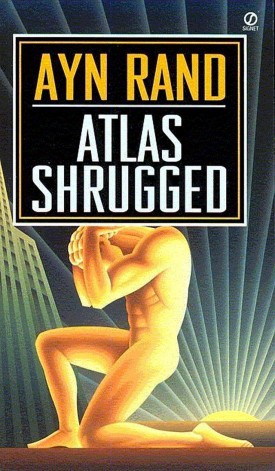
First book crushes: The feelings are so strong and obsessive. The books seem smart, sophisticated, cool; the characters in them say and do such great things, they seem like guides sent to teach you how to be that way too. But then the crush goes, and the object of one’s former affection becomes an embarrassment — or at least the memory of you quoting them so seriously does. To explore this phenomenon, we asked an assortment of literary-inclined people to revisit the books they loved back in the day, the ones that make them absolutely cringe today.
Sam Anderson, New York Times Magazine
Oh man, I suspect you’re going to be hearing this answer a lot, but: the complete works of Ayn Rand. I discovered them toward the end of high school and walked around for a couple of years giving Howard Roark-like speeches to everyone about “the highest blazing good of selfish free-market epistemology” or something. In retrospect, it seems pretty clear that my Objectivist phase had more to do with the subjective agonies of post-adolescence (insecurity, narcissism) than it did with pure reason. (And you could argue the same thing about Ayn Rand’s relationship to it.)
Alexander Chee, author of Edinburgh: A Novel
In high school I read a brisk mix of science fiction, fantasy and gay potboilers (Mass Effect 3 now is perhaps the best way to imagine my brain then). So, the novels of Marion Zimmer Bradley — I still can’t look at Mists of Avalon — plus the Darkover novels, which all had some gay potboiler action, now that I think of it. And hello Gordon Merrick, famous for The Lord Won’t Mind but I am thinking of The Great Urge Downward.
Yes, that is the title.
Nicole Cliffe, Lazy Book Reviewer/Classic Trasher
The Prophet, Kahlil Gibran: It blew through High Anglican summer camp like cholera, and I was uncontrollably pooping myself over it like everyone else. Ugh. Now I sometimes hear it at weddings and I want to die of embarrassment. Anyway, I think I read Sylvia Plath later that summer, which set me up for a lifelong obsession with Ted Hughes, so… um… how did we get here?
Maureen Corrigan, NPR
I’ve been wracking my brain, but honestly it’s hard to suggest any without feeling disloyal. In fact, at the risk of sounding sentimental — oh, what the hell, I’ll be sentimental — to dis those embarrassing young adult faves now feels like snickering at the friends I had in high school and college whom I’ve “outgrown.” I loved them and needed them at the time and, for that, I’ll always be grateful to them.
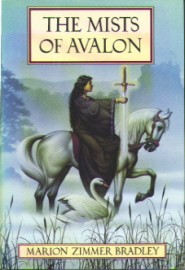
Sloane Crosley, author of How Did You Get This Number
I loved The Vampire Chronicles series by Anne Rice. They all blend together now but there’s a scene (in Queen of the Damned?) where all these ancient vampires have a kind of vampire board meeting beneath a volcano. It’s great. Those books were a guilty pleasure at the time but with the popularity of Twilight, they’ve become tweeny with age — like they keep getting younger. Which is fitting.
Stephen Elliott, The Rumpus
I don’t know that any books I loved make me cringe now. I loved the early V.C. Andrews books when I was in third and fourth grade, Flowers In The Attic, Petals In The Wind, If There Be Thorns. What makes me cringe is how much I hated certain authors in college that I learned to love in my late twenties. In particular, Raymond Carver, who I thought was boring and wrote stories about nothing. I was uneducated and wore my ignorance like a badge of honor. Now, if I don’t like a book, I blame myself first, and know there might be a time in my life where I learn to like something that I hated very much.
Max Fenton, The Believer
In high school, I tried to read all the books by Robert Heinlein. I’m sure I missed a few but I found at least 40 or 50 back when finding books took effort. Even as I read them — but more now — I cringed at something in the way he wrote women. There’s an undercurrent I recognized, but haven’t wished to return to in order to unpack or explore.
John Freeman, Granta
None of them, really. Jack Kerouac, Kurt Vonnegut, they’re all starter drugs for reading. Without these sentimental and less sophisticated early passions, I probably would have wound up having a very different life, one missing the strange and beautiful pulse that books require: of your mind powering another world, another planet to life.
Matthew Gallaway, author of The Metropolis Case
When I was in junior high I went through a pretty heavy Stephen King phase, which as much as I love a good horror story now makes me cringe a bit, because I think that his “war on adverbs” is idiotic.
Emily Gould, Emily Books
“What is the book equivalent of your 1998 fondness for ska,” basically? I tried to reread In The City of Shy Hunters by Tom Spanbauer recently and it turns out to be so much better when you’re 19 and living in Ohio and dreaming of living in a fantastical NYC where everyone is a heroin-addled drag queen angel. It’s still good, of course, but for me its magic was gone.
David Grann, The New Yorker
Many of the stories and books I read in my youth I still love and reread, such as “For Esmé — with Love and Squalor.” But in high school I went through a mortifying Ayn Rand phase, which thankfully went away along with my pimples.
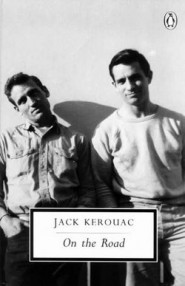
John Green, author of The Fault in Our Stars
I remember my freshman year of college, I briefly dated a junior (not to brag!) and told her that On The Road
was my favorite book, and in my opinion the greatest achievement in American literature. “You’ll find that statement embarrassing in a couple years,” she said. I thought she was being so holier than thou, but… yeah.
Justin Halpern, author of Sh*t My Dad Says
I was obsessed with the movie Tombstone to the point where I purchased the book which was BASED ON THE MOVIE. That’s right, the movie came first. A couple years ago I was cleaning out a storage locker and I found a copy of it, and it almost seemed like the writing had been farmed out to someone in China, written in Chinese, then put through an English translator without anyone checking if it was correct. Solid lines like “Doc Holiday pulled out his gun and it went bam.” At the time, though, I was like “Fuck yeah, it did. Nobody fucks with Doc Holiday.”
James Hannaham, author of God Says No
Sophomore year of high school, I think, I happened across Marion Zimmer Bradley’s novel The Catch Trap. This is a somewhat ridiculous epic set in the circus world of the 1940s and 50s, about trapeze artist Mario Santelli, of the Flying Santellis, and his protégé, Tommy Zane (oddly, the exact same name as a classmate of mine) the son of the lion tamer. The older and younger man are both in love with their craft. As they soar above the crowds, they soon discover that they’re in love with each other too, but they must keep their passionate feelings secret because of the era and because of their ages. I suppose the book’s about trust — imagine, two men, in very tight clothing, secret lovers, risking their lives as they grip each others’ wrists and somersault around the big top, so to speak. But I sure dogeared those sex scenes.
Heather Hartley, Tin House
As a sophomore in college, in the hopes of gaining insight into myself and fellow coeds — while at the same time polishing my poor French — I ambitiously bought a copy of Claude Levi-Strauss” La Pensée sauvage (The Savage Mind). I quickly learned that it was out of my reach, not so much in terms of where I stashed it less than 24 hours after purchasing it (in an upper corner of my closet behind grunge-inspired plaid shirts and artfully ripped jeans, a cultivated look of studied savagery inspired by the Mall), but rather in its structure, language and ideas. I’ve still got the copy somewhere and hope someday to get beyond the first words of Chapter One: “The Science of the Concrete.”
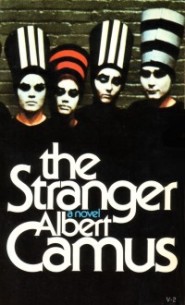
Anna Holmes, Washington Post contributor
Camus’ The Stranger. It was the spring or summer of 1986 or ’87, and I was eager to impress a boy — a Doc Martens-wearing, shaved head, and punk music-listening boy named Stewart in my high school sophomore class. Stewart spent a lot of time after school sitting under trees in the park near my mom’s house reading serious books and scowling at passerby and I desperately wanted to be deemed worthy of his formidable intellect. (And, of course, to kiss him.) I was 15 years old at the time, and it took me a few years — until my junior year in college — to realize that pretentiousness didn’t equal intelligence, and that the philosophical musings of men (real or fictional) were actually kind of boring.
Boris Kachka, New York Magazine
AP English convinced me that any book worth reading had to be 1,000 pages long — which explains my obsession with finishing Stephen King’s The Stand (unabridged, of course) and his abysmal 752-page Tommyknockers. When I decided to flirt with Ayn Rand, naturally I read Atlas Shrugged, and was well over my libertarian phase by page 1088.
Benjamin Kunkel, n+1
I don’t know if I want to condescend too much to my slightly New Age-y younger self, with his taste for Hermann Hesse and even Robert Bly. Egregiously earnest as that kid was, he would be right to look at me and ask: “You’re not interested in wisdom anymore? And have you become the least bit wise?”
Thessaly La Force, Girl Crush
I get the sense that this is an attempt to find the literary equivalent of celebrity shame-lust (i.e. finding Ryan Reynolds attractive, which I do). My literary cringe moments are many, but they were more because of my utter lack to comprehend the true value of the work. Or because I was unwilling to admit I wasn”t well read. I remember telling a famous writer that I admired John McPhee for the “sheer beauty of his prose.” Or informing Lorin Stein when I interviewed to be his assistant at Farrar, Straus & Giroux that I thought Nadine Gordimer was the best short-story writer alive. I had read one. Those memories still make me blush.
I suppose if there was a writer that I’ve outgrown, it would be Raymond Carver. We’re all over Raymond Carver, right? He’s like the Kate Moss of fiction. I wish I could go back and look at whatever I put as my interests on Facebook when I was first on there. But — and maybe this is cheesy to say — the truth is that when you find a good book, and you love it, it can stick with you for the rest of your life. The Mists of Avalon is still the shit. I will reread Motherless Brooklyn any day. I’m still telling people to buy A Moveable Feast. It’s the bad stuff that you inevitably forget.
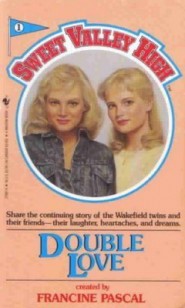
Ariel Levy, The New Yorker
I was obsessed with Sweet Valley High
. I remember that Jessica — or maybe it was the other hot, blond identical twin protagonist — had a cream-colored chaise lounge in her room and I always wanted one. I think eventually my parents got me an off-white carpet remnant to shut me up.
Mark Lotto, GQ
The Beats: When I was 16 and 17, I was so nutso about the jumpiness of On the Road, the weariness of Big Sur, the big sadness of “Kaddish” and “Howl,” even the nonsense of Dylan”s Tarantula, that I briefly but seriously considered applying to the Jack Kerouac School of Disembodied Poetics, founded by Ginsburg in 1974 and a part of Colorado”s Naropa University. It’s too hard to imagine what That Me — goateed, trench-coated, Gap-khaki-wearing — would have done at “the only fully accredited Buddhist-inspired university in the United States.” But This Me — unshaven, suit-coated, baby-having — would high-tail it right the fuck off the campus as quickly as humanly possible. And nowadays when the sun goes down and I sit on the old broken-down river pier watching the long, long skies over New York and sense all that raw land that rolls in one unbelievable huge bulge over to the West Coast, I never think of Dean Moriarty.
Holly MacArthur, Tin House
Shirley MacLaine’s books.
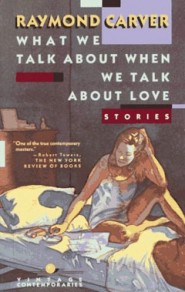
C. Max Magee, The Millions
Like many suburban teenagers, I was entranced by the Beats, especially, of course, On the Road. The idea that wild road trips awaited me in adulthood was part of the draw, but I was also infatuated with the idea that the Beats were just a bunch of guys hanging out who became a cultural movement by doing their thing. I thought, maybe my friends and I could do the same. Time has certainly mellowed this notion for me, and the Beat classics are not very relatable any more, but it’s fun to think now about my younger self.
Laura Miller, Salon
When I was 16, my brothers and I devoured the entire oeuvre of Erich von Däniken, a Swiss crank who made a fortune off of “proving” that the monuments of ancient civilizations were either built by aliens or built to communicate with them. CHARIOTS OF THE GODS? was our bible, and we solemnly discussed the “persuasive” evidence in it, all of which I have since entirely forgotten. So I felt a sentimental thrill recently when I received an email explaining that von Däniken was still at it, weighing in on the whole Mayan Calendar apocalypse question and explaining that “the Greek myths are real!”
Christopher Monks, McSweeney’s
When I was in college I really liked The Mambo Kings Play Songs of Love
because it seemed exotic (Cuba!) and hip (Latin Jazz!), and was loaded with pages upon pages of raunchy sex. I haven’t read the book since, but given that I only remember the pages upon pages of raunchy sex, It’s hard not to wince (and blush) just thinking about it.
Maud Newton, The Awl
At eighteen I read The Fountainhead and then Atlas Shrugged in a great, self-satisfied, gleeful rush, smugly scrawling quotes in letters to friends, while in the midst of dumping my boyfriend of three years for a guy who already had a girlfriend. Their relationship had nothing to do with me and so wasn’t my problem at all, according to Rand’s selfishness gospel. Some time later I regained my senses, critical faculties and ability to feel remorse. Ouch.
David Orr, New York Times Book Review
I cringe at most of my adolescent reading preferences, but especially at my 14-year-old self’s fondness for the five books of The Belgariad by David Eddings.They’re like The Lord of the Rings plus sitcom mugging. And the author was so lazy that when he spun off another five-book series, he just duplicated the plot of The Belgariad, right down to the magical rock that could only be carried by one particularly annoying kid.
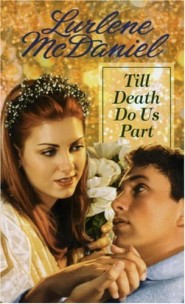
Nicole Pasulka, The Morning News
I was one of those self-satisfied teenagers who partied and read classic literature, so that’s pretty embarrassing, but my taste in books was solid. When I was younger and less pretentious I remember reading a bunch of books by Lurlene McDaniel. Have you heard of these? There are dozens of them. Some beautiful, gifted teenager has life snatched away — by cancer, by car accident, by organ failure — and then you cry. I think there’s also some creepy Christian thing going on. At least I know I hid them from my liberal Jewish mother. Whoa, I am totally embarrassed thinking about that, guess that was your point.
Lisa Jane Persky, LA Review of Books
I’ve never been ashamed or embarrassed to have read anything at any age even with hindsight. One exception might elicit a slight blush from an 8-year-old me: I was a Mad Magazine obsessive and you could not pull me away from anything Kurtzman and Elder, even if it was inside a not-too-cleverly-hidden issue of the then mysterious (to me) Playboy. I read with amazement, Little Annie Fanny but “back in the day,” they called these magazines “books.” Didn’t they?
David Rakoff, author of Half Empty
On The Road. At age seventeeneighteen, I pored over it — in truth, primarily looking for evidence of homoerotic activity between him and super-dreamy Neal Cassady/Dean Moriarty — and remember grooving on the language and unfettered lighting out for the territory. Three short years later, I couldn”t shake the feeling that the heroes seemed virtually indistinguishable from the Trustafarian poseurs I learned to assiduously avoid in college. There is an extended sequence, as I recall (it’s been over a quarter of a century), where they go to see a performance by jazz great Slim Gaillard and Kerouac describes some mind-meld between Slim and Dean — that Dean had some heightened understanding and privileged appreciation of jazz and race and Cool and that Gaillard feels it, too! — that is frankly just embarrassing.
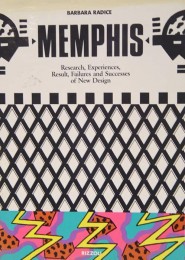
David Rees, author of How To Sharpen Pencils
MEMPHIS: Research, Experiences, Result, Failures and Successes of New Design by Barbara Radice. Watching “Miami Vice” in 7th grade, I was acutely aware of how little my parents’ aesthetic overlapped with that of Sonny Crockett and Rico Tubbs. Our modest Episcopalian home was completely devoid of pink Armani suit jackets and Ferraris, alas. But that didn’t stop me from filling sketchbooks with my own fashion designs, automobile designs, and furniture designs! I was captivated by anything pastel and ostentatious — which led me to the MEMPHIS design group and their ridiculous junky furniture (basically, it’s like IKEA on LSD). Looking at the MEMPHIS book now, it’s no mystery why I was attracted to the furniture: The pieces look like they were designed by 13-year-old boys, in the same way Shanghai’s skyscrapers look like they were conjured from the fever-dreams of toddlers.
Lizzie Skurnick, That Should Be A Word columnist
All of the works of Raymond Carver. It’s not his fault — they were imitated so heavily they have been made palimpsest, and read as satires of themselves. This holds true, sadly, for so much of the short story boom of that period. And you can probably cry Toni Morrison a river on the same score. Still good with Twelfth Night, though.
Sadie Stein, The Paris Review
Wow, that’s tricky: I tend to kind of revel in the bad stuff I read, and I never had, like, an Ayn Rand phase! But! I did go through a period where I would covertly — but slavishly — read every book I could lay my hands on on how to be sexy/chic/mysterious/alluring like a French woman. This in turn led to the purchase of several very unflattering striped shirts and one of those stove-top espresso makers.
Oh, and I once came across a “Felicity” novelization in a thrift store, and devoured it. I wish there had been a hundred: it totally went into the summer she leaves Noel for Ben after season 1! Oddly, it also contained recipes.
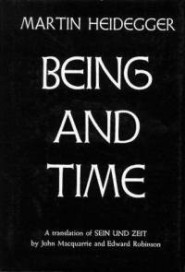
Lorin Stein, The Paris Review
It doesn’t make me cringe, exactly — I just have no idea what I thought Being and Time
was about.
John Jeremiah Sullivan, author of Pulphead
This’ll seem like a prissy or joy-killing answer to your question, but I have a no-cringe policy when it comes to books I’ve loved in the past. I just refuse to cringe over them. It’d be like running into an old girlfriend on the street and refusing to speak with her because you realize now that she had a deformity or something. On the Road
is the book I always think of in this context. Or really all the Beat stuff. It changed my life when I read it at sixteen — there are hundreds and hundreds of good books I might never have read if I hadn’t read those, if some movie I saw hadn’t convinced me I needed to — and sure, now I look and see that much of the work there was very or in some cases even comically bad, but to cringe at it would imply, I don’t know, regret for the early judgment. That I don’t feel. Some books were written especially for young, pretentious people — Look Homeward, Angel is another — and they have their own strange greatness, one that in order to live requires you leave it behind. What they show us about the evolution of personal taste counsels greater skepticism toward future judgments. Also forgiveness of yourself, which Lichtenberg said is the first duty of every writer.
Emily Temple, Flavorwire
At fifteen, I admit I secretly thought The Perks of Being a Wallflower was written just for me — I penned a gushy inscription in the front and pressed it gravely into my high school sweetheart’s hands when he graduated. Duncan, I take it back — we all did enough navel-gazing of our own in high school to need any literary assistance.
Baratunde Thurston, author of How To Be Black
Sorry, I have thought about it but love almost everything I read. Maybe I just have better taste or few regrets in life!
Stephen Tobolowsky, actor
Any Cliff Notes. I am embarrassed about all of the time I spent on the test and not on the work itself. (The Red and the Black, the Iliad and The Republic were my victims).
Edmund White, author of Sacred Monsters
I used to love Virginia Woolf and read her as one of the premier Modernists. Now she seems to me Edwardian and snobbish and precious.
Related: What’s Your Most Played Song? and What Movies Make You Ignore Everything Else?
Nadia Chaudhury was, at one point, obsessed with everything that Francesca Lia Block wrote, and soon after, Chuck Palahniuk.
Paying Back Your Friends: A Conversation
by Mike Dang

This series is brought to you by TurboTax Federal Free Edition.
Mike: So, Logan, I heard that after we left the bar last night, I went home to go to bed, and you went back to your neighborhood in Brooklyn and got more drinks?
Logan: Well, that is almost true. I went back to our friend Adam’s neighborhood and got one more drink, and also some macaroni and cheese, yes. That happened.
Mike: Oh.
Logan: I’m guessing that you’re interested in this fact because you think there are other things I could have spent that $26 on! ($6 for the drink, $10 for the mac and cheese, and then a sizeable tip because I had a small crush on the bartender).
Mike: Well, yes. I mean. Oh gosh, I don’t even know how to say this! But, I feel like I should? Because I’m your friend and we’re totally open about everything in our life to one another. So I know how much is in your bank account, and I know you can’t afford to buy all these drinks. I also know that you owe me $50 right now, and, not only that, but you just paid me back $300 that I lent you so you could make your rent last month. This is REAL TALK.
Logan: I cannot argue with anything that you have said there! Except that I think I owe you more than $50, actually. Isn’t it more like $70? And I don’t know why I haven’t paid you back yet. I’m going to the ATM right now actually. Hold please.
[10 minutes of lapsed time]
Logan: Okay, so I just gave you $60, which I think might be too little, but you said it’s too much. I’m trying to remember what was included in that amount. The paint you bought for my room from the hardware store that wouldn’t take my credit card, right? And brushes and things? That was at least $50 right there, I think. And then drinks at least that night and maybe another night also.
Mike: Yes, there was that weekend where I helped you paint your new room because you felt miserable about how shabby it looked. And I wanted you to be happy, so we decided to do a little DIY and make it feel more like home. I’m not counting half of those drinks, because friends buy friends drinks sometimes. And you wanted to buy a round of drinks, but didn’t have any cash on you, so you borrowed money from me to do it. Friends do not buy friends drinks when they don’t have the money. That is the key difference between you and me.
Logan: Okay, I don’t know if that’s the KEY difference. I mean, I just paid $5 in ATM fees so I didn’t have to cross 7th Avenue, and I know for a #mikedangfact that you’ve never paid an ATM fee in your life. But you’re right. We have different opinions about spending money we don’t have.
Mike: I literally just gasped out loud. ATM fees are a thing that are so easily avoidable! OK. I need to stop. Because I’m not your dad, I’m your friend.
Logan: But, like my dad, you just want the best for me. My dad also does not pay ATM fees and only spends money he has or has borrowed against something he owns, like a house. But let’s not talk about ATM fees. That’s another discussion ENTIRELY. Except maybe it isn’t. Because the ATM fees and the spending money I don’t necessarily have thing both come from the same place: living in the moment and being happy in the now. It’s a life philosophy, dude.
Mike: It’s America’s philosophy. It’s why so many people have fallen into this giant hole of debt. People just like to have nice things, so they end up living beyond their means. But I’m trying to get inside your head. Because when I owe someone money, it haunts me. I think about it for almost every moment until I’ve repaid back that debt. Like, do you remember when we went out to dinner that one time with our business friend? And he paid for dinner when I wanted to? And how it haunted me?
Logan: Yeah, I didn’t understand that. Because he for sure paid for it with company funds, which… is not the same as him buying you dinner. I was happy to get free dinner, though if he hadn’t put it on the company card, and I hadn’t been so utterly broke, I totally would have wanted to pick up the check, because picking up the check is fun! I love paying for people. It’s just such a good feeling. I imagine it’s even better when you’re paying with actual money and not future money that you think you’ll have, at some point.
But back to borrowing money.
I’ve borrowed money from you several times, BUT I usually don’t borrow money from friends. I think I have maybe two other friends I’ve borrowed money from. And I’ve always been so embarrassed about it. (This was in a time before now.) But you know all my worst things, so maybe it just didn’t resonate with me that having borrowed $60 from you was something that had to be erased from the record post-haste. Plus — and this is projection, I know — I know how good you are with money and that you would never bounce a check over that $60 or whatever. But: I feel good that I just paid it back, and I wish I’d paid it back earlier, with a little note saying “thank you, don’t hate me,” instead of handing you cash that I interrupted our conversation to go get.
Mike: Honestly, I didn’t start this conversation so that you’d pay me back that money, but thank you. My whole line of thinking with bringing up the extra $26 you spent after I went home last night was that I could point out that you’re getting into this cycle of running out of money before your next paycheck and needing to borrow money again. And I want to break this cycle. Also, I would be okay if you never paid me back that $60.
Logan: THAT WOULD NOT BE OKAY.
Mike: Well, what was it that Shakespeare taught us in high school? “Neither a borrower nor a lender be / for loan oft loses both itself and a friend.” I am not going to be that friend who ruins a relationship over money. I know the amount I can lend out and never see again, and still be cool about it. I’m not going to hold a grudge over $60.
Logan: But it would keep me up at night, thinking about it. I mean, you know about my friends who got married seven years ago, and I never got them a wedding present, and I think about it every day!? Once I remembered that I owed you $60, I would think about it every day until I paid it back.
Also, until you said it, it hadn’t occurred to me that I was going to run out of money again. Because, you know, the last time I promised myself it would be the last time. But that promise has been made and broken many a time before.
Mike: But I think if it haunts you, the thing you should do is to, I don’t know — pay back your friend? I mean, that’s the easiest and best solution!
Logan: Right, but I never think of it when it’s an appropriate time. Like, it’s always 3 a.m. and I’m reading some blogz and I’m like AGH I OWE MIKE DANG MONEY. Mike, have you ever had to borrow money from a friend? You know I would lend you whatever you needed. If I had it. Or I’d get it. Somehow.
Mike: Well, I’m usually the person lending money, but I have totally borrowed money from friends. I’m trying to think of a time. I’m guessing it was when I went to a restaurant that was cash only and didn’t have enough cash on me. But I always run to the ATM immediately after leaving the premises so that I can make sure my friend/lender gets paid. And if not, I have this curse where I remember everything. So I always pay back my friends within 24 hours.
Logan: What happens after 24 hours?
Mike: I die? Ha, no, but I’m not joking when I say that the debt haunts me. I don’t ever want to owe any money to anyone.
Logan: That sounds like a hard thing, Mike Dang. A real hard thing. So where has this all left us? I paid you back. I’ve realized I’m probably going to spend all my money before I get more money, again. And I’ve stricken you from my list of people to borrow money from. Et tu?
Mike: Well, I want you to know that I will always be here for you if you need money. It’s not that you should strike me from your list, it’s that these experiences will hopefully get you to a place where you never have to consult that list ever again.
Logan: Do you think I’ve gotten better with money or worse with money since we started being friends?
Mike: Better! I don’t think you’ve thought about it as much as you do now. It’s something — it’s a step. Acknowledging that this is a thing in your life, I mean.
Logan: I kind of think I’ve gotten worse, actually. Because I at least used to be stressed about being bad with money all the time. And now I’ve just decided that this is how I am, and so it doesn’t really stress me out as much anymore, except for those few days when I run out and have to borrow or whatever.
I don’t know, Mike. Does anyone else owe you anything right now? Do I owe you anything else?
Mike: Well, since I have this curse of a memory, I can definitely give you a rundown of people who owe me money. In sum, it’s not a lot of money. It’s money I can live without. And if I can offer any advice to anyone out there it’s: Don’t lend money out to anyone if you know you’ll be really upset if you never see that money again. If you’re lending out a large amount of money, you need to have the borrower sign some sort of contract with a date that they are obligated to pay you back in full — something you can take to small claims court if need be.
Also, don’t lend money to people you know are just absolutely terrible with money. That shouty blonde financial lady Suze Orman says that sometimes “helping is hurting,” which means some people will never learn from their mistakes if they get bailed out of trouble all the time. And if you’re the person who owes money to your friend, be a good friend and pay them back in a timely manner! We live in a world where you can do that using a phone app (Venmo, methinks is one of these apps). You really have no excuse anymore.
Logan: Wait, I could have paid you back using a phone app?
Mike: Um. I think you were the one who told me about that app.
Logan: Oh. I forgot.
Mike: Don’t worry, I’ll remember for the both of us. Just remember that an anagram for “Mike Dang” is “Mega Kind.” I’ll always be your mega kind friend.
Logan: That is the best anagram ever. Wow. The best I have is “Nacho Slogan,” which, well, it’s no “Mega Kind.”
Mike: Well, I do like nachos!
Sponsored posts are purely editorial content that we are pleased to have presented by a participating sponsor; advertisers do not produce the content.
Mike Dang and Logan Sachon always pay back their friends — you can find them both over at their shiny new website, The Billfold. Photo by emdot.
Two Poems By George Ducker
by Mark Bibbins, Editor
Federal Express Field
Bee-swatter on the dash stumped with tiny feet.
It’s Memorial Day and Donovan
Wheels the truck right into the middle of Oak St.
Kills the engine. Three cars behind. Honking.
More honking.
Eventually they get the hint. Reversing.
We’ve got frozen tomato sauce to unload.
On the Lord’s work with the door
Gawked up, the ramp descending. The low
Whine of every single A/C unit on full blast.
Silver window droplets and
The heft, our lift gate giving up on us.
We’ve got pizza for you every other day.
We work on holidays.
How’s about you unfold some cardboard?
Like James Davis, you wanna get
Drafted and go down
Third week like a buckled horse?
Clemson/Cleveland, the row of window shades
Above. Orange is two colors of under-
Standing. Tomato sauce is blood on your hands.
Donovan’s got his tattoo all picked
Out for Friday. It’s Cincinnatus
With the plow. He’s can flex his trick
Knee like the curling pedal of a bike. You
Guys back in that Caprice
Can lay on that horn as long as you like.
We ❤ our Customers
Five-fingered thieves in the night
They joke and touch each other:
Return that bagel to the baker, brother.
Calumny, she thinks, is the proper word to follow C,
Bulrush pie-tins bobbing in the reeds.
Never too soon to confuse delight
With spray-on cheese, on in they moved with
Two thousand roommates and only a thousand bathrooms.
A tenant lease as thick as a hearse and twice as dark,
Gaming masks of burned tortilla, walnut bark.
His heart-song is a C-clamp holding everything together
And outside, again, that weather
Is a ducking canvas sail in tatters
Waiting for the coolest pigeon feather.
Her ping-pong table, a forest couch engulfed in flames,
But holding hands is just the basest of these games,
A flutter-by in which the way to wake
Is the best way to spend the day, or rather,
Did she see? That morning’s yawning leaves
Left a perigee — the opposite of an apogee — and
Less than edible? It’s important that they
Kept the service credible and bright, the
Day-makers trudging with illumined lancets.
“Go back to sleep for now,” she said, and left that night.
George Ducker’s nonfiction has appeared in the Los Angeles Times, Bookforum and The Believer. He is from Greenville, South Carolina, and lives in Los Angeles.
Want more poems? Of course you do. That’s why you’ll be clicking through here to take a tour of The Poetry Section’s archive.
You may contact the editor at poems@theawl.com.
